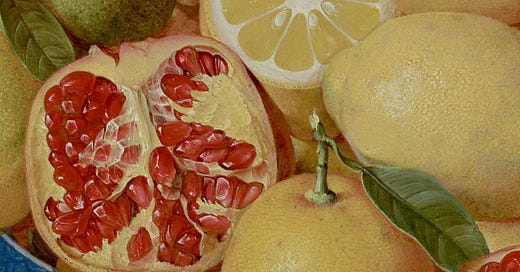“When you like something, you pay attention to it. When you like something—love something—you take time with it. You want to be present every moment of the rapture. Overeating or restricting doesn’t lead to rapture. Weight (too much or too little) is a by-product. Weight is what happens when you use food to flatten your life. Even with aching joints, it is not about food. Even with arthritis, diabetes, high blood pressure. It is about your desire to flatten your life. It’s about the fact that you have given up without saying so. It’s about your belief that it is not possible to live any other way—and you are using food to act that out without ever having to admit it.”
- “Women, Food and God - An Unexpected Path to Almost Everything”, Geneen Roth
Food is an essential part of life, that is a fact well-known to all of us. And being so essential, it is, consciously or unconsciously, at the very heart of so much of our general culture and personal philosophies. It is also an important vehicle through which we bond and connect — our celebrations and festivals are unimaginable without a hearty meal. Even our modern, digital age recognises, although with less of a sacralised allusion, that the food is central to one’s orientation in life — for us food becomes a matter of personal belief, ideology and even political positions. To be a vegan is to be of a liberal or an environmentalist disposition, and if one is to be “based” or a “vitalist”, one must devote themselves to drinking raw milk.
On the internet, there are also many young women who share dietary advice. Along them, there exists a whole eating disorder subculture where young girls advise each other on how to make it through a day with 700 calories without fainting. One can even notice the “Coquette mysticism” trend — a space where images of Virgin Mary, songs of Lana Del Rey, quotes of Sylvia Plath and Ottessa Moshfegh prosper —, and see how the young girls in it often play (even if only superficially) with the idea of eating God, with the imagery of blood, figs and pomegranates.
Whatever the outer form, all admit that food, indeed, is God, and how one relates to food is essentially, how they relate to life.
Keep reading with a 7-day free trial
Subscribe to Volupta to keep reading this post and get 7 days of free access to the full post archives.





